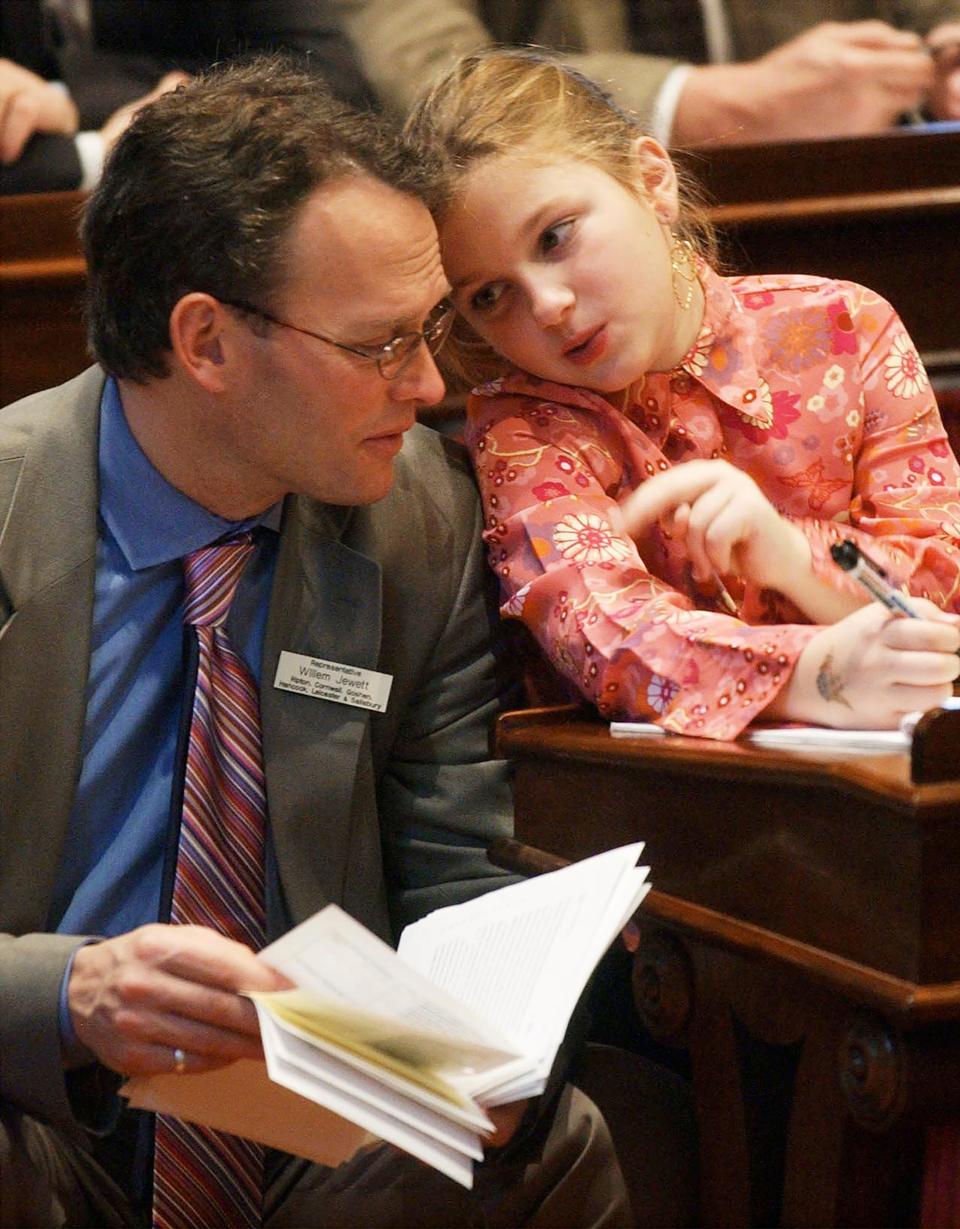Crossing state lines for assisted suicide: Vermont law opens doors to nonresidents
Vermont on Tuesday become the first state in the nation to update its medically assisted suicide law to allow out-of-state terminally ill people to use the procedure to end their lives.
Vermont Gov. Phil Scott signed a bill removing the residency requirement for the decades-old law. Vermont is the latest state that allows either medically assisted suicide or authorizes medical aid in dying, according to Compassion & Choices, a nonprofit advocacy organization.
"We are grateful to Vermont lawmakers for recognizing that a state border shouldn’t determine if you die peacefully or in agony,” Compassion & Choices President and CEO Kim Callinan said in a statement Tuesday, the Associated Press reported.
In March, Vermont had reached a settlement with Lynda Bluestein, a 75-year-old Bridgeport, Connecticut, woman with terminal cancer to allow her to take advantage of its law, provided she complies with certain aspects of the state guidelines.
"I was so relieved to hear of the settlement of my case that will allow me to decide when cancer has taken all from me that I can bear," Bluestein, who has fallopian tube cancer, told the Associated Press. "The importance of the peace of mind knowing that I will now face fewer obstacles in accessing the autonomy, control, and choice in this private, sacred and very personal decision about the end of my life is enormous."
'DEATH THAT WAS MEANINGFUL': Connecticut woman becomes first non-Vermont resident allowed assisted suicide right
Vermont legislators sought to 'doing the right thing,' expert says
Almost as soon as last year’s lawsuit was filed, several state legislators began calling local organizations such as Patient Choices Vermont, which educates residents about medical aid in dying, help to find strategies to fix the law, Betsy Walkerman, the group’s president, told USA TODAY on Tuesday.
Walkerman said many Vermont residents go to nearby states like Connecticut, Massachusetts, and even New York for health care and it seemed only right that her state provide similar options.
"We’re very pleased that the signed the legislation that was supported passed overwhelmingly in the state House and the Senate based on a recognition that medical care really does cross state borders," Walkerman said. "People should have equal access to medical care that is consistent with their priorities and values. It’s doing the right thing."
'THIS IS A COMPROMOISE': Vermont Senate OKs end-of-life legislation
New York doctor also pleased with Vermont's assisted suicide law change
Another woman, Diana Barnard, a physician from Middlebury, Vermont, also sued Vermont in federal court last year, claiming its residency requirement is a violation of the state's Constitution’s commerce, equal protection, and privileges and immunities clauses.
Barnard, who specializes in hospice and palliative care and has patients in New York state, similar to Connecticut, doesn’t allow medically assisted suicide, is pleased with Vermont's updated law.
"I thank Vermont lawmakers for repealing the residency requirement for medical aid in dying for the sake of all of my out-of-state patients," Barnard said in a statement. "I know they will be greatly relieved to have access to this end-of-life care option, whether they decide to use it or not."
How Vermont will handle the updated law is unknown
Walkerman added with Vermont being one of the smallest states in the nation with a population of nearly 650,000, there’s uncertainty about how much it can handle those who are seeking medical assistance "to control the timing of their end-of-life status."
She said those seeking an option in Vermont should first do a checklist, which includes discussions with their primary care physicians and their family, to make sure the state is the right choice to meet their needs.
"We don’t know exactly how it’s going to go here. Our doctors who are familiar with this option already have full practices," Walkerman said. "Exactly how this going to evolve is unknown at this time."

Contributing: The Associated Press
This article originally appeared on USA TODAY: Assisted suicide law in Vermont first to allow nonresident use

